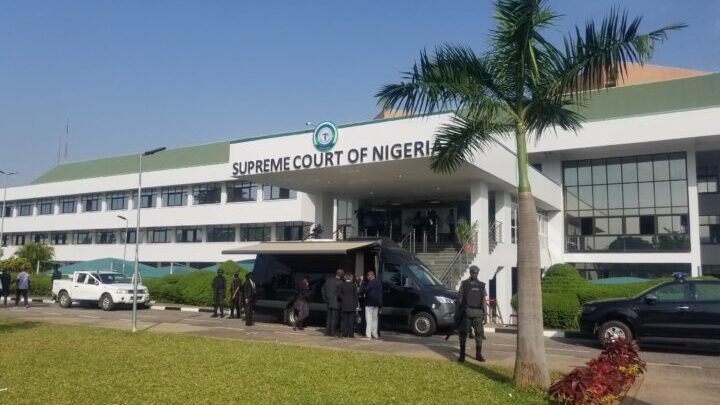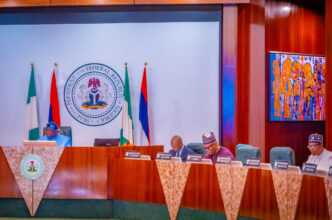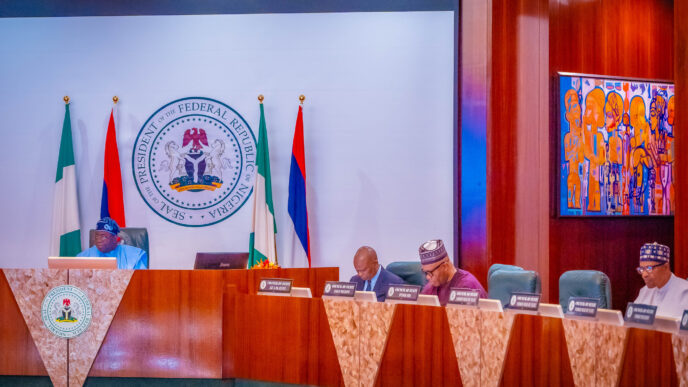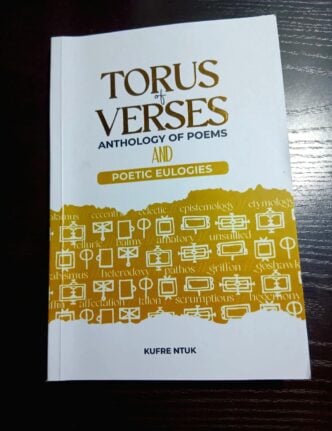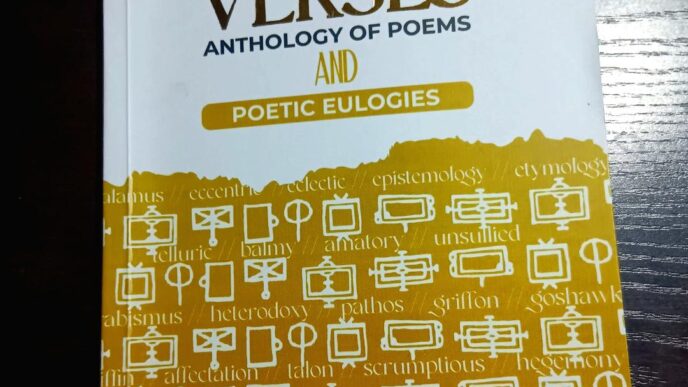Supreme court
The Supreme Court of Nigeria delivered a judgement dubbed a “landmark,”pronouncement giving local government financial autonomy. It is anticipated that this judgement will release them from the chokehold of the state government, have a major impact on how local government operate across the nation, enhance their capacity to deliver vital services to their constituents and improve governance at the lowest tier of government. Although there has been widespread applause for this decision among Nigerians, there has also been criticism in some places. Nevertheless, notwithstanding the commendations and condemnations, a legal examination of the verdict is necessary, even if only to enrich our discussion and deepen our jurisprudence.
Background
Nigeria operates a federal system of government, as espoused by 0K.C. Wheare and enshrined in Section 2(2) of the 1999 Constitution (as amended), which establishes that the entity called Nigeria shall be a federation consisting of states and a federal capital territory in firm alignment with the structure of federalism. This system of government involves the division of powers between the federal government and the states exercised through each government’s executive, legislature, and judiciary arms.
This federal structure does not cater to the local government level except to the extent that they are essential for the functioning of the state in retailing governance to citizens in smaller clusters within the state. The constitution further gives this effect in Section 3(6) in so far as stating there will be 774 local government areas in Nigeria, and Section 7 guarantees their existence through a law, elected only through democratic means, specifies the scope of authority, and provides for their financing in sub-section 6 notably through the apparatus of the State’s legislative arm. It provides access to public finance in Sections 162 (4), (5), (6), and (7).
Advertisement
Due to this subsumption, the local government, as a layer of government, is not separate from the state government; it is an administrative arm. Lamentably, the functions constitutionally designated in the Fourth Schedule to be performed by the local government are largely left undone or epileptically performed by the state. Further, in gross exploitation of subsumption, instead of ensuring that elections are held, the state sometimes sets up “caretaker committees” to oversee the local government’s functions, clearly violating the constitution. On the finance side, the claim and outcry have been that the state withholds the funds allocated for local government and corruptly uses them for self-enrichment, evidenced by grassroots-level underdevelopment, a lack of accountability, and corruption charges against governors at the expiration of their term in office.
Given this quagmire, different administrations have tried to grant the local government autonomy, but with no success owing to the constitutional requirement in Section 9 of the state houses of assembly’s two-thirds majority vote supporting such an alteration, which has proven to be a significant obstacle given the influence of the state governors. Informed of this dilemma, the Tinubu administration approached the court rather than the legislature to grant financial autonomy to the local government which culminated in the judgement delivered by the apex court.
Facts on Local Government Council Elections
Advertisement
The counter affidavit filed by the 36 states of the federation detailing the status of local government councils (LGC) reveals the following;
- States with democratically elected LGC: Bayelsa, Borno, Ebonyi, Edo, Ekiti, Gombe, Jigawa, Kaduna, Kano, Katsina, Kebbi, Lagos, Nasarawa, Niger, Ogun, Oyo, Rivers, Taraba, and Yobe.
- States with pending court cases: Abia has had restraining orders since 2023, Anambra since 2016 and 2017, Cross River since 2022, Enugu since 2023, and Kwara and Osun since 2022, preventing them from conducting elections.
- States with expired tenure/scheduled elections: Adamawa – tenure expired in April 2024, Delta- planned for July 13th, Kogi – tenure expired in December 2023, Sokoto – tenure expired in April 2023. Some have transition committees in place
- States with insecurity challenges: Imo and Zamfara.
- States with transition committees: Akwa Ibom, Bauchi, and Ondo.
- States with LGC suspension: Plateau and Benue.
The Prayers to the Court
The attorney general of the federation (AGF) suing the 36 states of the federation approached the Supreme Court sitting in its original jurisdiction to consider the nineteen prayers, notably to include but not limited to the following:
- That the 36 states and their proxies are under obligation to ensure democratic election at the local government level.
- That the 36 states and their proxies lack the power to dissolve democratically elected local government councils (LGC).
- The introduction of Caretaker Committees as a replacement for LGC is unconstitutional.
- That the Federal government is not obligated to pay money standing to the credit of the local government to the state when there is no democratically elected LGC.
- That the said money standing to the credit of the LGC in the federation account should be distributed and paid to them directly.
In the lead judgment delivered by Justice Agim, all nineteen prayers were granted and supporting declarations were made. With regards to the payment from the federation account to the LGC directly, a “broad interpretation” was used to interpret section 162(5)that mandates such revenue be paid into a “state joint local government account”. It must be stated that five justices concurred with the lead judgment, however, there was Justice Abiru who partially dissented from the lead judgment alluding that the plaintiff had not furnished the facts that would necessitate a broad or liberal interpretation to occasion the direct disbursement to the LGC.
Advertisement
The Review of the Judgment
1: Canons of Interpretations
In the lead judgment, Justice Agim in interpreting the relevant provisions of the constitution, particularly section 162(5) (6) and considering the prayer by the plaintiff to pay directly to LGC from the federation account and the defendant’s counterargument that direct payment would be a violation of the provisions stated inter-aliathat “the obvious implication of the position of the defendants is that the unconstitutional status quo should continue as they are unwilling to hand over local government allocations from the Federation Account to the local government councils that own them”. Also stating that in constitutional interpretation because of its sui generis nature “….one of the principles suitable to its sui generis nature is that it must be given a benevolent, broad, liberal and purposive interpretation and a narrow, strict, technical and legalistic interpretation must be avoided to promote its underlying policy and purpose”.Therefore, a broad and liberal interpretation rule was used to arrive at the lead judgment.
Dissenting from this rule of interpretation, Justice Abiru made the following statements “What the plaintiff is asking for in effect is that the Court should nullify the direct meaning of the provisions of section 162 (5) (6) of the Constitution and reconfigure it to admit another mode of payment”, that “The Court must be convinced with explicit, clear, cogent and credible facts showing that the need to exercise such interpretation jurisdiction has arisen”, and that “…. a Court is not allowed to use the principle that the provisions of the constitution should be interpreted liberally or broadly to disregard a clear and unambiguous provision of the constitution, without any clear case presented for it” citing Fawehinmi vs. Inspector General of Police (2002) where Uwaifo, JSC explained that: “It cannot be suggested that clear and unambiguous terms of our constitution may be rewritten or construed beyond what they mean in the guise of liberal or broad interpretation”.Justice Abiru further stated that “The point must be made that sentiments, speculative facts and conjectures cannot be used by the Court in interpreting the constitution under the guise of seeking to achieve fairness and social justice in the polity. This is not the job of the Court in interpreting the Constitution”.Therefore, to the extent of direct disbursement, Justice Abiru dissented from the lead judgment.
Advertisement
The Court’s interpretative role is core to its existence, and its interpretation at the highest level is final. Various rules of interpretation are employed when there are gaps or loopholes in legislation because the drafters could not have foreseen all scenarios.As an interpreter, the court is cautioned not to cross the boundary between construction and legislation when addressing the gaps. There is dissent in this judgement as to which rule of interpretation applies to section 162 (5) (6)to determine the legislative intent and give effect to it.
Lawyersknow that the legal interpretation of legislation begins with the natural and ordinary meaning of the words used. This is referred to as the literal rule. It is applicable where the words of the legislation are clear, precise and unambiguous, the literal rule is sufficient in interpreting the legislative intent. In Sussex Peerage Case (1884), Lord Chief Justice Tindal stated “If the words of the statute are in themselves precise and unambiguous, then no more can be necessary than to expound those words in their natural and ordinary sense. The words themselves alone do, in such case, best declare the intention of the lawgiver”.
Advertisement
Lawyers also know that the fishing expedition should cease if the literal rule sufficiently determines the legislative intent.Justice Higgins aptly captures this duty of restraint in Amalgamated Society of Engineers v Adelaide Steamship Co Ltd (1920) “The question is, what does the language mean; and when we find what the language means, in its ordinary and natural sense, it is our duty to obey that meaning, even if we think the result to be inconvenient or impolitic or improbable”. It is clear that all the Justices agree that the provisions are unambiguous, the dissent in my view, is whether they shouldhelp the law as it should be or interpret the law as it is.
2: Interpreting Section 162: Judicial Activism Vs Judicial Restraint
Advertisement
This matterrevolves around the Constitution’s interpretation of Section 162(5)(6) within its constitutional context. To grasp the concept of constitutional contextualism, it is essential to examine the governance structure established by the 1999 Constitution. Section 2(2) establishes a federal system of government. Therefore, the contextual interpretation of the Constitution is based on the concept of federalism, providing the foundation framework for accurately interpreting subsequent provisions. The theme of federalism is a permeativethread throughout the Constitution, including sections 162(5)(6).
When interpreting legal texts, considering the context is crucial. This encompasses legislative history, purpose, and the law’s overall framework. Adopting a holistic approach, the Court makes informed decisions that uphold the rule of law. In Marwa v Nyako (2012), the court established that constitutional provisions should be interpreted within the context of the entire Constitution. This means reading the Constitution as a cohesive document and interpretingit accordingly. In this case, Section 162(5)(6) is a part of the federal structure.
Advertisement
The purposive interpretation suggests that the LGC is not intended to be a federating unit in its own right.This is deduced from the combined reading of sections 2(2), 3(6), 7 (1) (3) (4), and 162 (5) (6).A more balanced approach would have been to reconcile section 162(5)(6) with other constitutional provisions, rather than interpreting it in isolation and giving it abroad and liberal meaning that deviates from the legislative express intent of federalism.As the Court noted in Taylor v The Owners-Strata Plan No 11564 (2014), a purposive interpretation cannot be used to adopt a construction that “departs too far from the statutory text…. Because too great a departure may violate the separation of powers in the Constitution”.
Teleological interpretation is typically adopted to resolve ambiguities, fill gaps in the text, and update the text to accommodate changing circumstances. However, critics argue that this approach risks empowering judges to infuse the law with their views and values, rather than strictly adhering to the text itself. This concern is rooted in the potential for unwarranted judicial activism, which undermines the principles of textualism and the duty offidelity to text.In this case, my criticism is that in the absence of any ambiguities in the plain text, resorting to teleological interpretationhas effectively resulted in judicial legislation, which exceeds the designated role of the judiciary.
Juxtaposing Section 162 as itrelates to local government and the Court’s decision, it is my view that the Court has “legislated and not interpreted” by authorizing direct payment to the LGC in what may charitably be deemed judicial activism.But is it judicial activism when the court makes a new law rather than finding new meaning within the law as it is?
At this juncture, it is essential to distinguish between judicial activism within the law and outside it.Judicial activism within the bounds of the law involves instances where judges allow views about public policy, among other factors, to guide their decisions in interpreting and applying the law consistent with the Constitution and legal precedents in a way that promotes justice and fairness such as was held in Roe v. Wade (1973): The US Supreme Court legalized abortion nationwide, citing a woman’s constitutional right to privacy. That right to privacy was not invented by the court but rather expanded to include abortion rights.
Judicial activism outside the bounds of the law occurs when judges make decisions based on their personal moral, religious beliefs or political motivations rather than interpreting the law as written. This can include creating new rights not explicitly mentioned in the Constitution or ignoring and rewriting clear legal precedents to achieve a desired outcome. It usually goes outside legislative intent, no matter how noble it may seem.
The Court has instructed direct payment to LGC, on which provision of the Constitution is this decision and instruction predicated? Is thebank account specified in the Constitution?What evidence before the Court overruled the express text of the Constitution?Was a broad and liberal interpretation required? Is the Supreme Court permitted to make law?
The primacy of the statutory text, its contextual reality, its coexistence with other provisions, and the limitation of judicial powers should have been respected.The provisions of Section 162 are unambiguous; they intend to preserve the principle of federalism. Local government funds are to be paid into a “State Joint Local Government Account” for onwarddisbursement. This is the law and the literal rule was sufficient. The court instructing direct disbursement has engaged in judicial activism that exceeds legal boundaries.
The gluttonous exploitation of the provision by governors is saddening and the moral outrage and rebuke expressed by my Lordships is acknowledged. However, the Constitution is clear on whose duty it is to amend the law to reflect our collective disdain, and that is not the judiciary.I do not doubt the intentions of my lordships but it can be safe to say the Court has done the right thing, wrongly. Therefore, while this decision is morally sound, legally, it is not.
With this local government’s financial autonomy judgement, we must now grapple with its inadvertent confusion. The judgment has weighty implications for Nigeria’s federalism and governance structure, potentially disrupting the balance of power between tiers of government and creating a third tier not contemplated by section 2 of the Constitution. It potentially alters the revenue allocation structure, which contradicts Section 162’s express provisions and effectively amends the Constitution without following the proper amendment procedures outlined in the Constitution itself. This judgment exceeds the judiciary’s authority by encroaching on the legislative branch and undermining the separation of powers. If any other branch of government were to overstep its functions in the same manner, the judiciary would reject it.
Hypothetically, would States be considered disobedient if they refuse to comply with this judgment until the provisions are amended as the Constitution requires? Would it not be a violation of the Constitution if the AGF, as reported in the media, withholds local government funds following the court’s orders? The Supreme Court in Attorney General of Lagos State vs. Attorney General of the Federation (2004) held “The “declaration that the intention or proposal of the Federal Government to suspend or withhold for any period whatsoever the statutory allocation due and payable to the Lagos State Government pursuant to the provisions of section 162 (5) of the Federal Republic of Nigeria 1999 will if carried out be unlawful and contrary to the provisions of the said Constitution”. To whom should the States institute such a matter to enforce their right if breached? What should we do with the constitutional provisions this judgement conflictswith?Is it then a stretch to say that the court’s decision is inconsistent with the Constitution, making Section 1(3) applicable?
At this point, we must brace up for indeterminate reactions in response to this judgment. Regrettably, this should never be the outcome of a court judgement, particularly those issued by the apex court. These situations further fuel the arguments against judicial activism outside the law, not less, usurpation of power, disregard for precedent, instability and uncertainty,imposition of personal bias,undermining democracy,judicial supremacy, and the lack of accountability. Judicial activism blurs the separation of powers, making judges legislate from the bench.
Judicial restraint is not cowardice. It is often misunderstood as a lack of courage to make bold decisions. Rather, it is principled in acknowledging institutional limits, respecting other branches of government, the democratic process, the rule of law, establishing legal precedents, and upholding the constitutional framework. Courageous judges exercise restraint by resisting the temptation to legislateeven when unpopular. Therefore, a balance between judicial activism and judicial restraint is essential for upholding the rule of law and ensuring the stability of our nascent democracy.
Critical Next Step
The national assembly, by all legitimate means necessary, should give effect to the court’s judgement by enactment.This is the only remedy. More importantly, if we must give autonomy to the local government, we must give it bulk autonomy, not this retail and unconstitutional one. We, by law, can invent a variant of federalism beyond the concepts of its proponents. A variant that specifically establishes and allows for three levels of government may be called triplex, nested, or triadic federalism. Who says we can’t break out of the mould and create a model for ourselves that suits the unique characteristics we want if the one we are in doesn’t fit? This is where legislative courage and grind come in; the rubber must hit the road now.
Finally: A Word of Caution
As many cheer on the recent judgement that aligns with our moral compass, let us not forget the importance of upholding the rule of law. While the outcome may be morally just, the judgement’s legal flaws pose a risk to the very fabric of our democracy and legal system. Celebrating this judgement as a precedent for future cases may unwittingly perpetuate a dangerous trend by the judiciary. Judicial activism, when unchecked by constitutionality, can lead to a slippery slope. We must recognise that the judiciary’s role is to interpret the law, not make law. When we condone judicial overreach, we risk undermining the separation of powers and the democratic process. “When judges make law, they are not doing their job. They are usurping the power of the legislature and undermining the rule of law.” Judge R. Bork
Let us, therefore, applaud the judgement’s moral bravery while acknowledging its legal limitations. Let us continue to advocate for justice and uphold the rule of law and the principles of judicial restraint. In the words of Justice A. Scalia, “The judiciary is not a legislature, and its role is not to make laws but to interpret them”.
Views expressed by contributors are strictly personal and not of TheCable.

